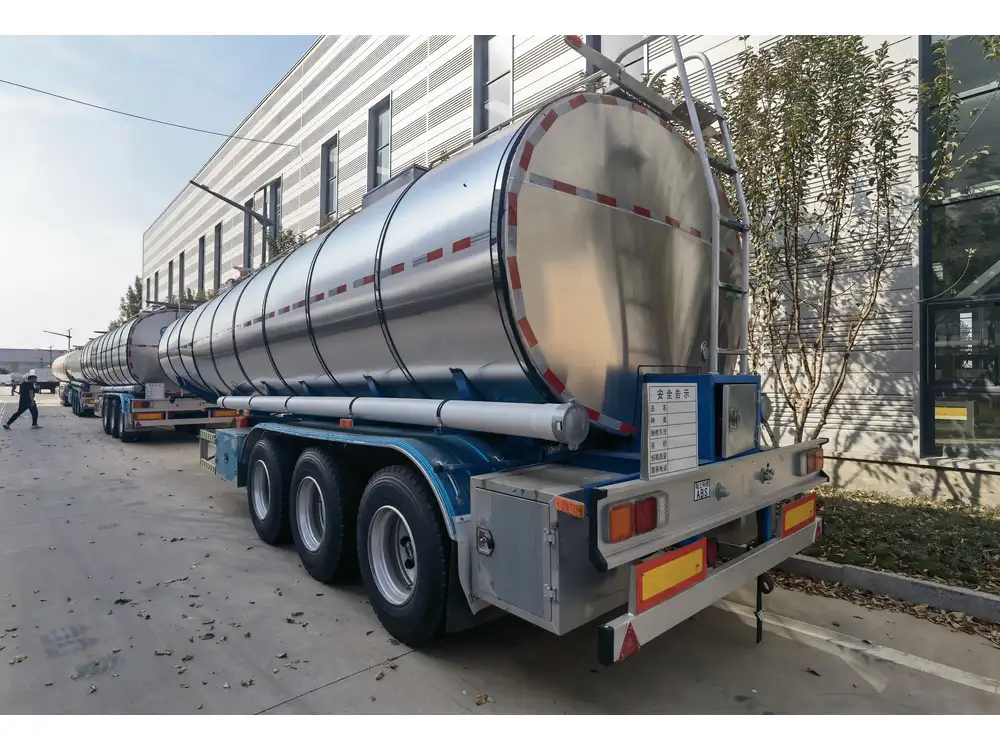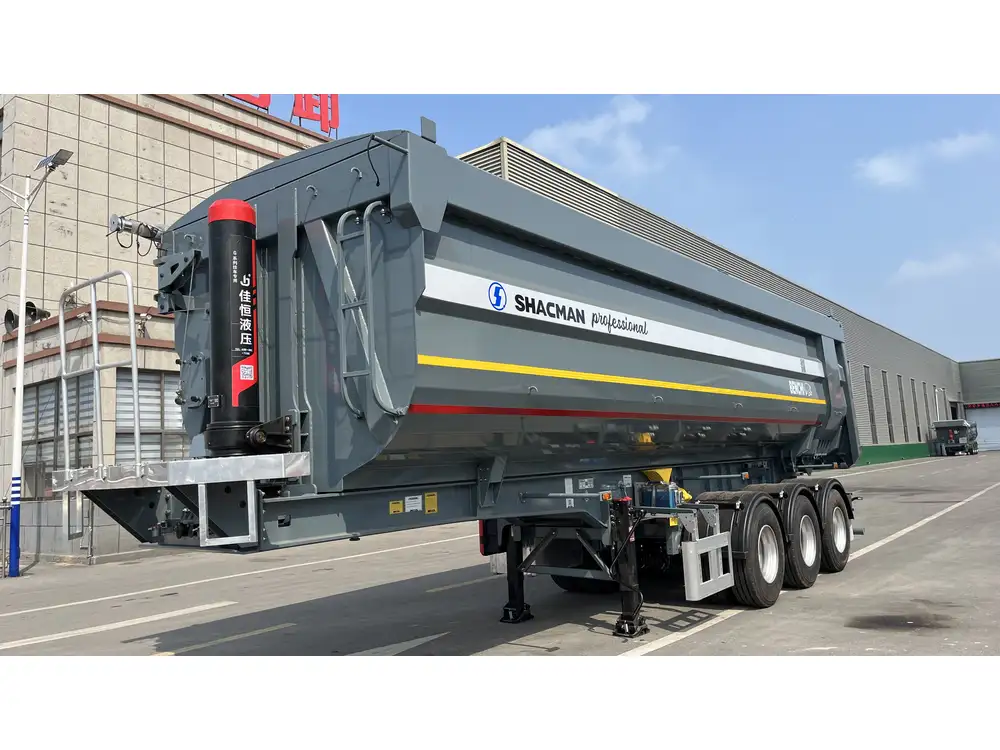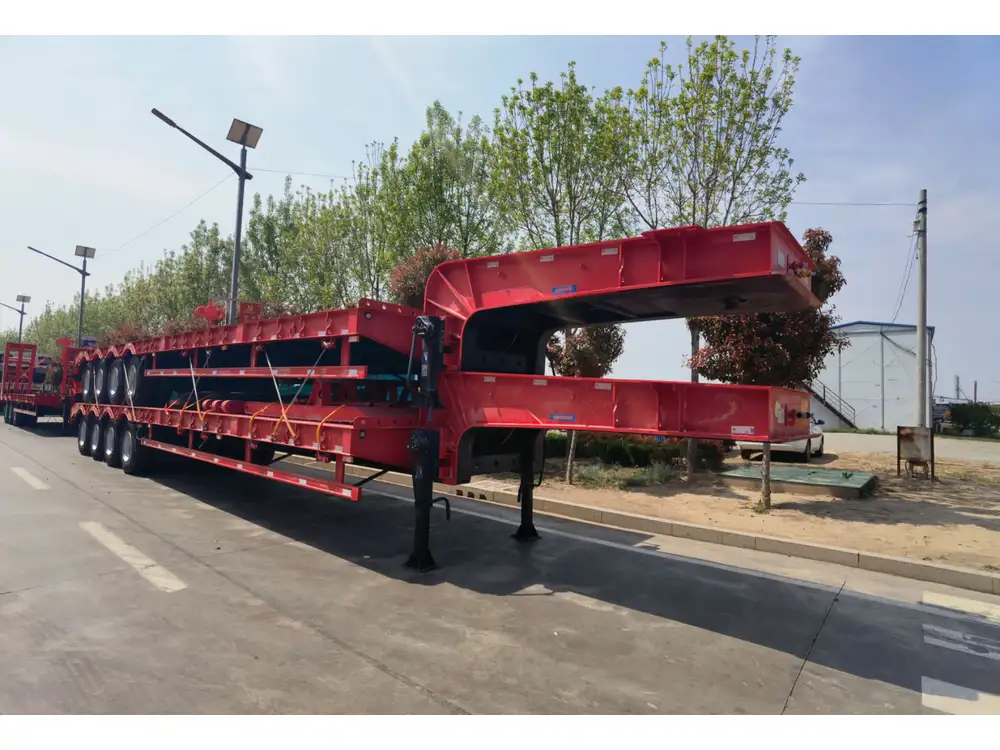When venturing into the world of commercial trucking and freight transportation, clarity on regulatory requirements is paramount. One essential topic for operators is whether hauling a pneumatic trailer necessitates a tanker endorsement. This article will dissect the complexities surrounding the need for a tanker endorsement when operating pneumatic trailers, exploring various aspects including industry standards, legal requirements, safety considerations, and broader contextual implications.
Understanding Pneumatic Trailers
What Are Pneumatic Trailers?
Pneumatic trailers, also known as pneumatic tankers or dry bulk trailers, are specialized vehicles designed for transporting dry bulk materials such as powders, grains, and granulated substances. They utilize low-pressure air to unload contents through a series of valves. Given their unique construction and operational requirements, understanding the characteristics of pneumatic trailers is essential for the discussion on endorsements.
| Feature | Description |
|---|---|
| Capacity | Typically between 1,000 to 1,500 cubic feet |
| Materials | Used for materials like cement, flour, plastic pellets, etc. |
| Construction | Composed of aluminum or steel with smooth interior surfaces |
| Discharge Method | Uses pneumatic pressure to discharge cargo |

How Pneumatic Trailers Operate
The operational mechanism of pneumatic trailers hinges on the principle of air pressure. When transporting goods, air from a compressor is pumped into the trailer, creating a pressure differential that facilitates the movement of the material from within the trailer to the discharge point.
- Loading: The operator connects a hose to the loading port and uses a vacuum or pressure system to fill the tank.
- Transporting: En route, the sealed tank maintains the integrity of the cargo while allowing safe passage.
- Unloading: At the destination, the pneumatic system is activated, pushing the contents out through the discharge pipe.
Understanding how these trailers work provides insight into why specific endorsements might be necessary.
Regulatory Framework for Driving Pneumatic Trailers
The Role of the Tanker Endorsement
A tanker endorsement (N endorsement) is crucial in ensuring that a driver possesses the knowledge and skills required to handle vehicles transporting liquid cargo. Liquids, particularly hazardous materials, require specific maneuvering capabilities due to their tendency to shift and create stability challenges.

Endorsement Requirements: An Overview
To secure a tanker endorsement, drivers must pass a written test specific to tanker operations. Here’s a breakdown of the requirements:
| Requirement | Details |
|---|---|
| Driver’s License | A valid CDL (Commercial Driver’s License) |
| Written Examination | Covers tanker-specific knowledge |
| Demonstrated Skills | Safe operation of tankers |
Do Pneumatic Trailers Fall Under Tanker Regulations?
This poses the fundamental question—do pneumatic trailers necessitate a tanker endorsement? The answer is nuanced and depends on several factors such as the materials being transported, the design of the trailer, and the regulations of the state in which operations occur.
- Type of Cargo: Pneumatic trailers are typically used for transporting dry materials rather than liquids. Thus, the risk profile differs significantly.
- State Regulations: Each state may have different regulations regarding endorsements and the definition of a ‘tanker.’ Thus, drivers should consult local Department of Motor Vehicles (DMV) rules.
- Federal Regulations: Under Federal Motor Carrier Safety Administration (FMCSA) guidelines, the definition of a tank vehicle includes those with a tank or container that holds liquid cargo. Since pneumatic trailers carry dry materials, they may not fall under the same umbrella.
Conclusion on Tanker Endorsement Requirement
Given the factors above, it can be generally concluded that operators of pneumatic trailers do not need a tanker endorsement since they are designed to transport dry bulk materials. However, understanding local and federal guidelines is vital for compliance.

Safety Considerations When Operating Pneumatic Trailers
Unique Challenges of Pneumatic Operations
Despite not requiring a tanker endorsement, the operation of pneumatic trailers entails significant safety considerations.
- Air Pressure Management: Adequate training regarding the management of air pressure is essential to prevent overloading or equipment failure.
- Stability During Transport: Load shifting can still occur, especially if the cargo is not properly secured.
- Unloading Procedures: Operators must be well-versed in safe unloading practices to prevent accidents or spills.
Recommended Best Practices
To enhance safety when operating pneumatic trailers, consider these practices:
- Regular Inspections: Conduct thorough checks of the trailer and associated equipment before each load.
- Training Programs: Implement comprehensive training to ensure drivers are aware of the unique risks associated with pneumatic operations.
- Emergency Protocols: Establish clear procedures for handling emergencies during transit and unloading.
| Safety Best Practices | Details |
|---|---|
| Regular Inspections | Inspect trailers pre-and post-operation |
| Driver Training Programs | Focus on safe handling and unloading |
| Emergency Protocols | Prepare for unexpected situations |

Industry Implications and Future Considerations
Regulatory Trends in the Transportation Sector
As the logistics industry evolves, regulatory requirements may shift. Monitoring trends in transportation safety standards and endorsement requirements will be crucial for manufacturers, operators, and drivers alike.
- Technology Influence: Advancements in automated systems might change how trailers are operated.
- Environmental Regulations: Increasing pressure for sustainability may result in new regulations regarding cargo types and trailer specifications.
Future Research Directions
There remains a need for further research on how changes in material types and transportation technologies might influence regulatory requirements surrounding pneumatic trailers.
- Impact of Evolving Cargo Types: As industries innovate, the materials transported in pneumatic trailers may change, necessitating reevaluations of safety protocols and endorsements.
- Driver Education: Ongoing education on new technologies and processes will be essential for maintaining safety and compliance on the road.

Conclusion
In summary, while pneumatic trailer operators generally do not require a tanker endorsement due to the nature of their cargo, comprehending the specific regulations at both state and federal levels is crucial for compliance. Additional considerations surrounding safety, operational guidelines, and future industry shifts further substantiate the complexity of the logistics landscape.
By prioritizing informed practices and remaining up-to-date with regulatory changes, those in the semi-trailer manufacturing and handling sectors can enhance safety, efficiency, and adherence to the law. Ensuring that drivers and operators are knowledgeable about the specifics of pneumatic trailer operation will certainly bolster overall safety and operational success in the freight transportation industry.
FAQs
1. What are the main differences between pneumatic trailers and tanker trailers?
Pneumatic trailers transport dry bulk materials using air pressure, while tanker trailers are specifically designed for liquids. The operational techniques and safety considerations can thus vary significantly.
2. Can I drive a pneumatic trailer without a CDL?
In most cases, a CDL is required to operate a pneumatic trailer due to its size and weight. Verification with local regulations is advisable.
3. What training should drivers have for pneumatic trailer operations?
Drivers should undergo training focused on air pressure management, unloading procedures, and emergency handling specific to pneumatic trailers.
4. What should I check before operating a pneumatic trailer?
A pre-trip inspection should include checks on the pneumatic system, trailer integrity, coupling devices, and safety equipment.



